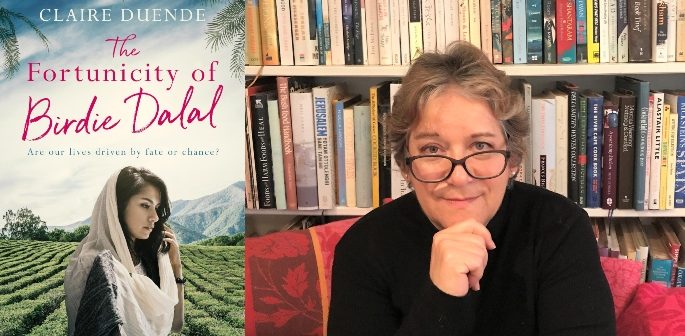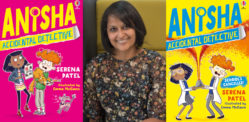"Apparently, Idi Amin liked to be called Big Daddy."
Claire Duende is a well-travelled author who has written the moving book, The Fortunicity of Birdie Dalal (2020).
Claire has a unique background, with her being born in Ghana to a Spanish mother and an English father.
With an experience of various cultures, it is no surprise Claire Duende went on to write The Fortunicity of Birdie Dalal.
The Fortunicity of Birdie Dalal is Claire Duende’s debut novel and was published by Tryphena Press on January 4, 2020.
The book vividly focuses on the period when Ugandan President Idi Amin had expelled East African Asians from Uganda. The main character, Birdie, is evicted from Uganda and becomes a refugee in London.
Birdie moves with her Cambridge educated husband, Jack, and their son, Mohin. However, Birdie’s horrific past cannot be forgotten when an innocent victim reaches out for help.
It is a captivating book, taking readers on a journey with Birdie and her family.
Claire’s writing and characters are perhaps honed through her travels and publishing job where she specialised on travel books.
The central character in The Fortunicity of Birdie Dalal is very resilient, especially having faced tragedy. Similarly, Claire has also experienced hardship in life
Claire Duende had a brain tumour and underwent surgery to remove it in 1999. Due to the surgery, she went blind in her right eye. However, she persevered and still believes “you can’t sit around and feel sorry for yourself.”
Claire always wrote no matter what job she pursued and irrespective of any hardships that came her way.
The death of her 30-year-old stepson, James, was one of life’s biggest challenges. However, Claire believes in the spiritual essence of life.
In an exclusive Q&A with DESIblitz, Claire Duende talks about her novel, The Fortunicity of Birdie Dalal, along with future books.
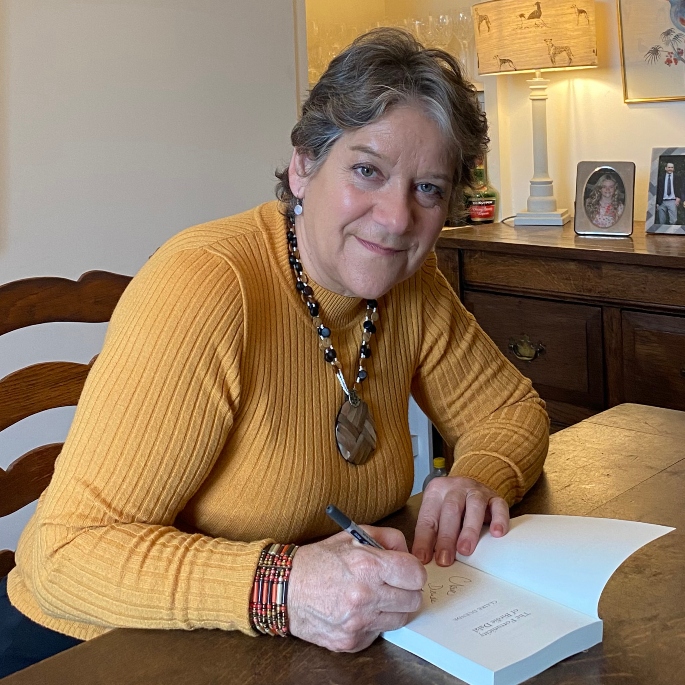
What was the origin for the title and book, ‘The Fortunicity of Birdie Dalal’?
For many years I’ve been fascinated by the eternal question: are our lives driven by fate or chance? I’ve concluded that the two are really intertwined. I termed this Fortunicity.
The third important element is what we actually do with this combination of cards dealt to us. I believe life can give us little nudges and signals.
Some people listen, some people don’t. Being blind to the opportunities sent to us can lead to dissatisfaction – a sense of being out of kilter.
Initially, my book was going to be very different. It was about a woman, going through hard times, who meets a survivor from past traumatic events. In this case, Birdie, in her seventies in modern-day Britain.
But Birdie became real to me and she was such a lovely character that I just wanted to hug her.
And I wanted to know more. So, I started researching what really happened during the expulsion of the Ugandan Asians.
What emboldened you to write about the Asian expulsion from Uganda?
I was fifteen in 1972 and clearly remember watching the evening news with scenes from UK airports. My heart went out to the families arriving in our freezing country, robbed of all they had owned.
It probably also struck a chord in me as my mother had escaped the Spanish Civil War and grew up in Tangier.
While researching my novel, I read Mahmood Mamdani’s book From Citizen to Refugee which was fascinating. I was unaware that there had been a resettlement camp in Kensington, London – such a trendy, affluent area.
I remember visiting Kensington in 1972 as a naïve teenager who lived in a quiet country village.
“The buzz and pace in the area was both exciting and scary.”
How would Birdie, newly arrived from Kampala, have viewed Kensington? How would she have felt visiting the latest iconic store, Biba? Kensington Market playing Ravi Shankar and George Harrison? No money. No home of her own.
Birdie’s husband, Jamal, anglicised his name. Do you think this is still relevant in society?
My novel took place 50 years ago and it would be a pity to think we haven’t moved on. People can stand proud with their names and should never feel outside pressure to anglicise them.
During contemporary times, I would like to think we are a lot more open and welcoming of other cultures. Each one of us is different and unique and we should always celebrate that.
Some of my friends have considered changing their surnames back to their original family names. This can also create a tug-of-war in their minds – go with their lineage or stay with the name they now know.
Ultimately, everyone should have a choice.
How is Birdie’s journey impacted by her mother’s death?
Externally, it leads to her having quite an unconventional upbringing. She’s close to her father who’s preoccupied with his tea plantation. And their lives, due to the manner of her mother’s death, are quite disconnected from the local community.
Losing a mother can have a huge effect on someone’s life. In Birdie’s case, she feels she’s somehow responsible for what happened. Although her fears are unfounded, this is a heavy burden for a child to bear.
My mother didn’t die, but she did leave us when we were very young. We were living in Beirut at the time and it was over a year before we saw her again. I was very young, but my sister would have been the same age as Birdie.
She always felt that if she had been more deserving of love my mother would never have left.
In the story, soon after the tragedy, Birdie overhears a conversation. It’s silly gossip but it has a profound effect on her for the rest of her life. When her son is born, she has to confront her fears and her feelings of guilt.
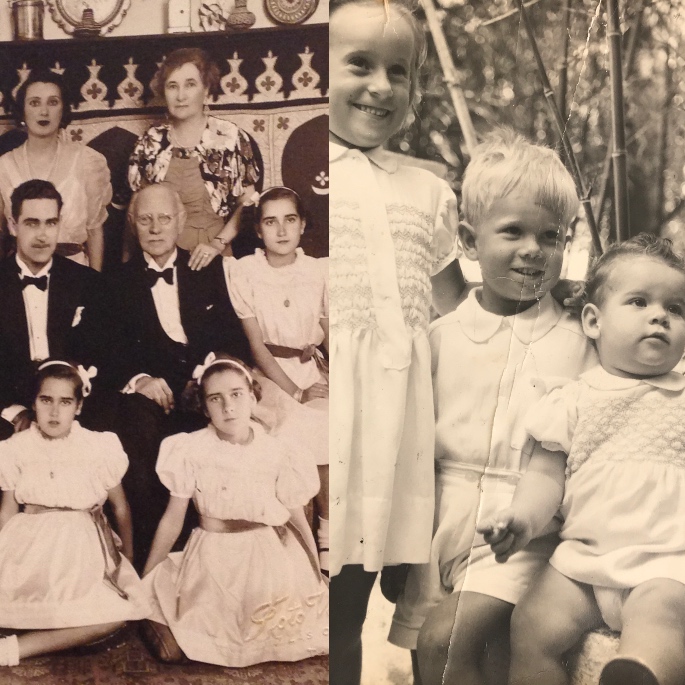
What would you say is the most powerful portrayal in the book?
Apart from Birdie, I would say the most powerful character is Sabu who is loosely based on the Hollywood actor.
He’s so warm and spontaneous and stands for so much of what is good and innocent.
In England, Valeria is a strong individual. Kind, but with an underlying vein of hardness. She stands back and assesses Birdie to see if she is worthy of her help.
Finally, in a way, London itself takes on a character of its own. The contrast of living on the edge of such wealth and also witnessing the poverty in the back streets.
The underlying fear that this could be the fate awaiting Birdie and her family.
Why did you refer Idi Amin as Dada throughout the book?
“Apparently, Idi Amin liked to be called Big Daddy. I find it very macabre that such a sadistic despot could naturally have such a soft name as Dada.”
I understand that some Ugandans were fond of him. But did they convince themselves that they loved him because the alternative path could lead to nightmares?
I also like the literary effect of juxtaposition. Such as blood on snow. A tragic funeral on a beautiful summer day. An evil sadist being given a soft name.
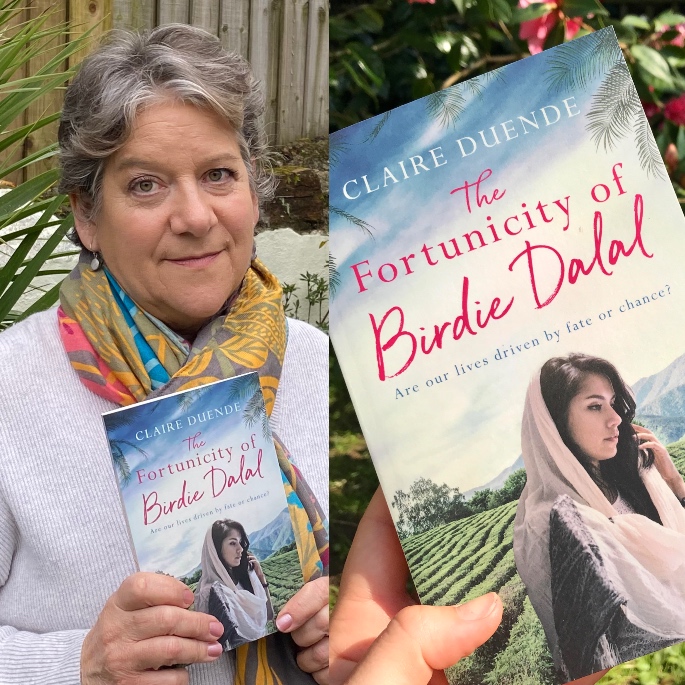
What key messages do you want readers to understand from the book?
Firstly, that we can overcome loss and can find the strength to move forward. That’s the only way. If we sense the signals that life puts in our path, we can find the best route.
It’s not always the easiest journey but it will lead to us being true to ourselves.
Sometimes, when all seems lost, there can be a hidden resolution that’s working its way in the background. We only truly understand in hindsight. It is rather like Steve Jobs’ famous quote:
“You can’t connect the dots looking forward: you can only connect them looking backwards.”
Love takes many forms, even maternal love. And it’s not just limited to blood ties. There are many shades of it. And ultimately, kindness is the most important virtue and gift.
We can get through most things if we have three important factors – kindness, love and hope.
From a diversity perspective, how has your book been received?
I really don’t know. I’ve received some lovely emails from readers saying how the novel has lifted their spirits during the lockdown.
Other readers have said how they didn’t know much about Idi Amin and the expulsion of the Ugandan Asians. They are grateful they have learned something.
Ultimately the book is about humanity which I think most of us can relate to. That was the most important element for me.
In any case, I truly believe that once an author has written a book, they pass it over to the reader. Then it becomes the reader’s own, to view as they wish.
Do you think East African Asians in the diaspora are still affected by Idi Amin’s actions?
It would be arrogant of me to believe that I could understand how so many people feel. Each life and each journey is different. So many people would have experienced terrible hardship.
I imagine it must be hard not to resent Idi Amin’s memory and the injustice of the expulsion.
And sometimes resentment can hold us back but, from what I’ve learned, the East African Asians are bold people. They can move forward.
Ultimately, though, it must be incredibly hard to have left such a beautiful country and lost everything in the process.
I’m sure the older generation bear the emotional scars. The next generation is moving forward with fresh lives.
Tell us a little about your writing experience and development?
I loosely plan my writing but find it hard to stick to an outline as the characters take on a life of their own.
When writing The Fortunicity of Birdie Dalal, I honestly hadn’t factored in the two sisters, Shai and Padma. They just popped up ready formed. It’s strange how people can just assemble themselves in a writer’s imagination.
I love researching and the very act of tunnelling down into archives stimulates my imagination. It happened this time in the early stages of my research.
I read a newspaper article about a little boy who, during the expulsion, didn’t seem to belong to anyone. He was the catalyst for my character, Sabu.
I use a software Scrivener, which makes the process so much easier. It has a pinboard section and you can move chapters around easily. This was particularly useful with this book where I needed to flip backwards and forwards.
I also needed to keep the tempo for both storylines moving at approximately the same pace. In this case, Scrivener helped.
In honesty, I find writing in the first person has its challenges. It’s very limiting.
However, with this novel, I felt the viewpoint gave a sense of immediacy and connection – seeing everything through Birdie’s eyes. But of course, I could only try to imagine and empathise.

What can you tell us exclusively about your forthcoming books?
The Fortunicity of Birdie Dalal is the first in a loose trilogy. Each book could be read on their own but come together as a whole if read from Birdie’s experience first.
In the second novel, I pull back with the viewpoint. I continue with Birdie’s story – her enterprise and relationships.
We also learn more about her mother. The book looks more deeply into Valeria’s story. We find out what experiences in Italy made her driven to make recompense.
The third book in the series continues with Birdie and Valeria but we also see a third character, already introduced, and something of their back story. It should all dovetail together.
The theme throughout the series is consistent with that of the first book.
“The lesson is kindness and hope.”
And the gift of kindness can be stimulated by having gone through hardships in the first place. Kindness received breeds further kindness. Our lives would all be better for it.
Excitingly, there is more to come from Claire Duende and her main character, Birdie. The Fortunicity of Birdie Dalal captivates the reader, with Claire bringing the main character to life.
The messages of hope and kindness are effectively portrayed throughout the book. Birdie’s tragic experiences, including her mother’s death, are calamities she must overcome.
Readers will be hooked on Claire Duende’s book, The Fortunicity of Birdie Dalal. The book is available for purchase through various stores.
Meanwhile, fans of Claire Duende and her work can expect some more thought-provoking books in the future.




















































